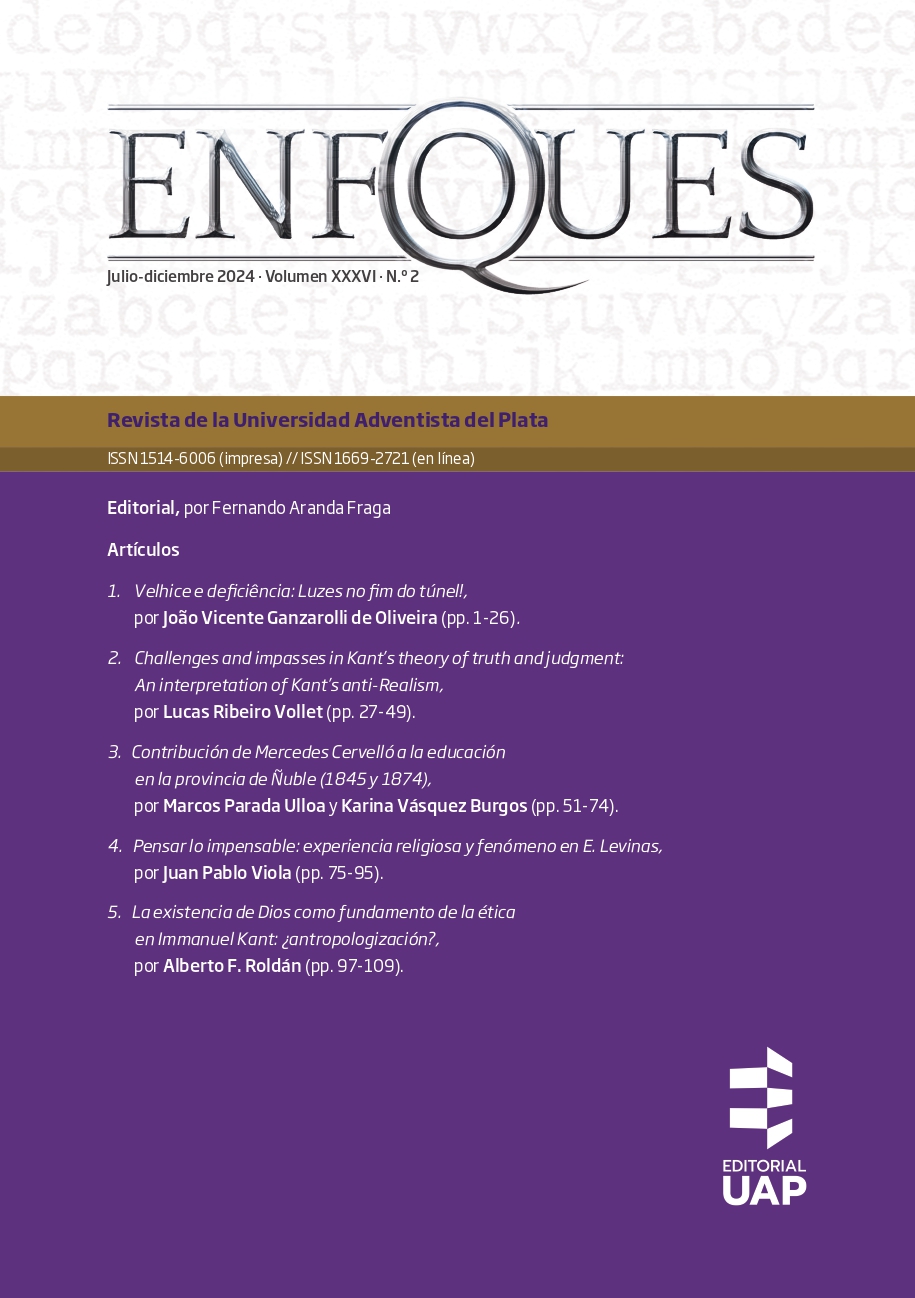On thinking the unthinkable: Experience and phenomenon according to E. Levinas
DOI:
https://doi.org/10.56487/enfoques.v36i2.1193Keywords:
Levinas — Religious experience — Conscience — God — PasivityAbstract
Traditionally, the self-experience relationship has been viewed through consciousness, which not only undergoes but also shapes experiences, echoing Aristotle’s notion. In modern philosophy, consciousness categorizes and comprehends perceptions. Levinas sees consciousness and understanding as simultaneous activity and power. However, a question arises: Is experiencing a finite object comparable to the experience of the infinite or Absolute? According to Levinas, religious experiences surpass consciousness’s synthesizing capacity. To tackle this, we’ll employ concepts beyond classical philosophy like transcendence, inverted (bouleversé) intentionality, the infinite, and God. Our aim is to show that subjective perception and representation of the Absolute fundamentally differ from other phenomena. With Levinas, we’ll explore using a non-ontological language to express the invisible and “unknowable” in religious experiences while maintaining an ontological discourse. In essence, I seek to clarify how experiencing the Absolute challenges traditional consciousness and understanding categories, and how an alternative philosophical approach can illuminate this complex dynamic.Downloads
Download data is not yet available.
Downloads
Published
2024-12-30
Issue
Section
Articles
License

This work is licensed under a Creative Commons Attribution-NonCommercial-ShareAlike 4.0 International License.




